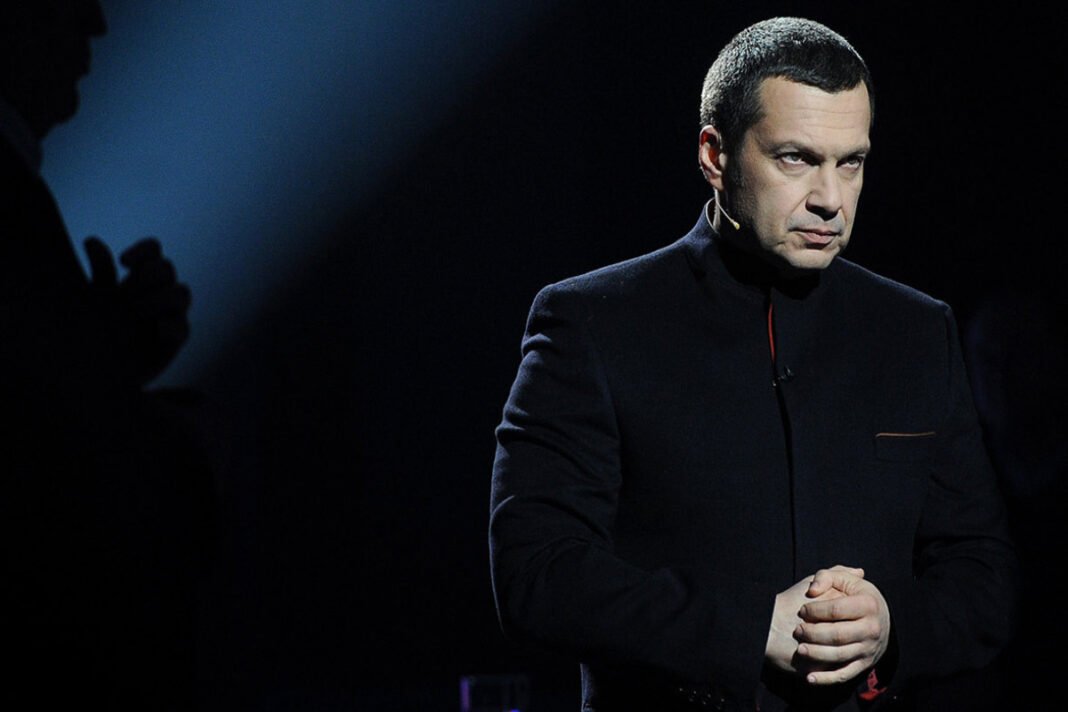Once again, Vladimir Solovyov—Russia’s fiery, self-styled “principled” talk show host—unleashed a barrage of curses, theatrical outrage, and pseudo-prophetic ramblings. The trigger this time? The participation of both Ukrainian and Russian representatives in the 3rd Shusha Global Forum, held in Khankendi from July 19 to 21.
In a particularly bizarre video clip now making the rounds, Solovyov manages to outdo even Russia’s infamous “Putin Squads”—a group of elderly women in matching t-shirts who demand that U.S. presidents stop urinating in Moscow stairwells and issue ultimatums to world leaders.
Sounds absurd? It is. And yet Solovyov’s latest tirade lands squarely in the same category.
What set him off was the mere fact that Ukrainian journalist Dmytro Gordon asked Azerbaijani President Ilham Aliyev a question—in Russian—and that Aliyev responded in kind. Predictably, this was spun as an affront to Russia’s dignity.
Never mind that Gordon doesn’t speak Azerbaijani, and Aliyev doesn’t speak Ukrainian. Russian remains a shared language of communication across much of the post-Soviet space—practical, not political. Solovyov, of course, attempted to twist this into a debate over language policy, bemoaning the decline of Russian in favor of national languages. But that’s sovereignty in action, not a slight against Moscow.
In fact, Solovyov inadvertently acknowledged Aliyev’s poise and education—highlighting what he lacks himself. The president’s courteous choice to reply in Russian reflected not submission, but diplomacy. He ensured the audience—both in the room and across borders—could understand the exchange.
Solovyov’s tantrum followed familiar lines: accusing Gordon of anti-Russian bias, chastising Russian political analysts like Sergey Markov for not storming out, and bizarrely demanding that Gordon should be on the frontlines of war, gun in hand. The irony? Solovyov himself, despite his wartime fervor, has yet to trade his designer jackets for fatigues.
The reality is clear: Gordon operates on the informational front, openly and under his own name. Solovyov? He lobs vitriol from the safety of a studio, armed with selective outrage and distortions.
The climax of the clip—Solovyov threatening Azerbaijan with all-out war “by land, air, and sea”—veers from propagandistic to delusional. Russia, bogged down in its prolonged and costly war in Ukraine, is in no position to open another front. The fantasy of “taking Kyiv in three days” has turned into a three-year quagmire. Sanctions, economic strain, and military fatigue weigh heavy.
And even the Kremlin, it seems, is trying to de-escalate. Just recently, an official statement noted that differences over Ukraine “should not interfere” with Moscow-Baku ties. So who’s misleading the Russian public—Putin’s press secretary or his loudest mouthpiece?
Solovyov didn’t stop at war threats. He floated the idea of a UK-engineered coup in Baku—another recycled scarecrow from Russia’s propaganda closet. Whenever a post-Soviet nation slips from Moscow’s grasp, the “evil West” is blamed.
But this time, even that narrative rings hollow. Azerbaijan is pursuing an independent foreign policy. Armenia is drifting away from Moscow. Turkey is expanding its influence in the region. And Russia? Cornered.
What remains is desperation—and noise. Solovyov’s panic is the sound of a fading empire lashing out at a world that no longer obeys. Perhaps it’s time he stopped shouting at nations that never asked for Russia’s guidance, never fought Russia’s wars, and certainly don’t owe it silence.
Azerbaijan isn’t a stage for faded imperial dramas. It speaks as an equal—firmly, clearly, and without the need for hysteria. If Solovyov can’t handle that, he may soon have to explain his outbursts not to his viewers, but behind closed doors.


